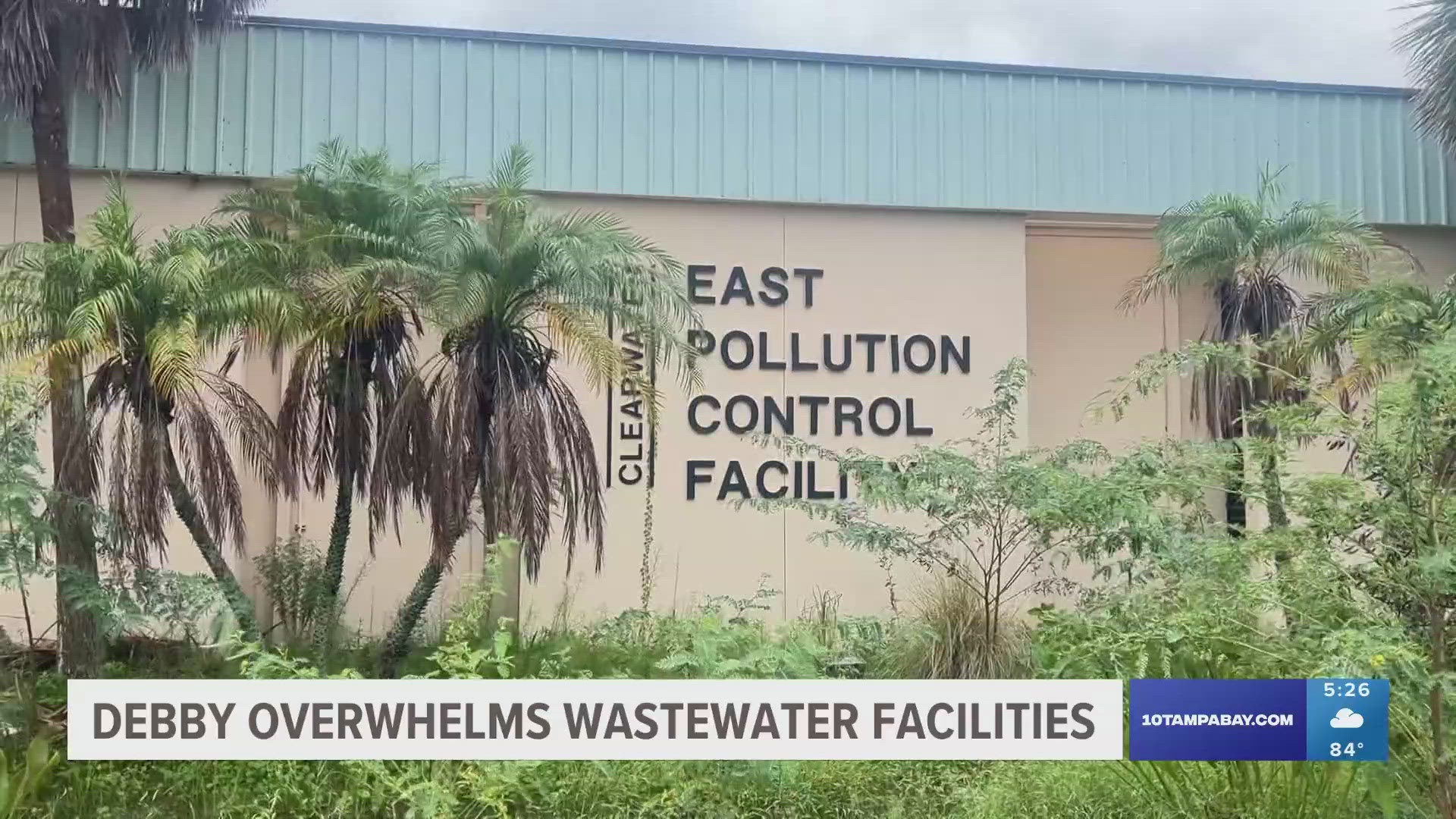TAMPA, Fla. — Tampa wastewater officials said a reported 309,430 gallons of wastewater — a little less than half of an Olympic-sized swimming pool — could end up in Hillsborough Bay after heavy rainfall from Hurricane Debby caused multiple overflows.
The city's wastewater department on Tuesday informed the state that a manhole on West Palm Drive just blocks away from Bayshore Boulevard was inundated with "extremely high flows" of water because of the heavy rains linked to Debby. This caused an overflow of wastewater, which lasted more than 12 hours on Aug. 5. Approximately 7,940 gallons of wastewater overflowed.
Elsewhere in Tampa on Tuesday, several manholes on West Coachman and Alline avenues overflowed about 270,000 gallons of wastewater. These areas are just a few miles apart.
The wastewater discharged into nearby stormwater inlets. Those inlets connect to a stormwater system and drain into Hillsborough Bay. The wastewater wasn't able to be collected. According to the pollution notice, water samples are being collected to test for contamination levels.
The city also reported a wastewater overflow near Indiana and Ridge avenues (1,490 gallons) and Perry Avenue and Charter Street (30,000 gallons). Both flowed into the nearby Hillsborough River, which empties into Hillsborough Bay. It's unclear at this time how the wastewater will affect water quality in Hillsborough Bay.
For reference, an Olympic swimming pool generally has 660,000 gallons of water, according to the USA Today.
Over in Pinellas County, local officials reported to the Florida Department of Environmental Protection that wastewater overflowed from at least three facilities. Clearwater's Marshall Street wastewater treatment plant reported sewage overflow from a manhole into storm drains that eventually leads to Clearwater Harbor.
Extreme flooding from tropical systems has led to the contamination of waterways and sources in the past, according to a 2023 scientific study published by Emerging Infection Diseases.
"Cyclones are a risk to public health that will likely become more serious with climate change and aging water infrastructure systems," the study said, in part.
Analyzing 23 years' worth of data, the study found an increase in infections from waterborne diseases such as E. coli, Legionnaires' disease and cryptosporidiosis (commonly known as crypto) after tropical cyclones that caused destructive flooding.
Tropical systems tend to drive the transmission of waterborne diseases because floodwater moves large amounts of pathogens and inundates water supplies, causing further contamination, especially if there are sewage overflows, the study said. However, the study pointed out that contamination doesn't always lead to transmission of disease.

